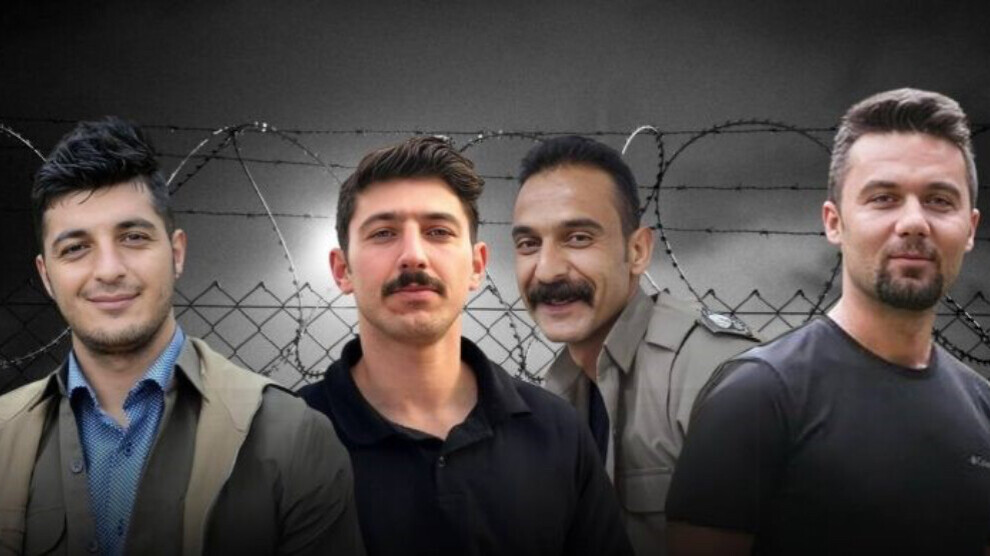Iran does not hand over the bodies of 4 executed Kurds to their families
The bodies of the four Kurdish political prisoners executed by the Iranian regime yesterday are not being handed over to their families.
The bodies of the four Kurdish political prisoners executed by the Iranian regime yesterday are not being handed over to their families.

Kurdish political prisoners Pejman Fatehi (28 years old), Mohsen Mazloum (27 years old), Vafa Azarbar (26 years old) and Mohammad Faramarzi (28 years old) were executed in Iran on 29 January after 18 months in prison.
According to the reports in Eastern Kurdistan media, the Iranian regime buried the bodies of the executed Kurds in an unknown place and told their families not to wait for the bodies.
After the execution of 4 Kurds, harsh reactions against the Iranian regime developed in four parts of Kurdistan and many countries of the world.
Background
The four political prisoners met with their families for the first and last time on Sunday. Then, the 4 prisoners were taken from Evin Prison to Ghezel Hesar Prison in Karaj and were executed.
The execution was preceded by an odyssey of torture and human rights violations. The four activists “disappeared” a year and a half ago. They were abducted by the Iranian Secret Service from the eastern Kurdish metropolis of Urmia in July 2022. Since then, there has been no sign of life from them.
On 12 October 2022, the relatives of those abducted were horrified to see the detainees reciting “confessions” on Iranian television. The four were clearly badly marked by torture. Although the Komala organization denied that the four man had planned a bomb attack in Isfahan, that no weapons or explosives were found on them and that they had not engaged in espionage but had been politically active for the left-wing movement, they were sentenced to death without evidence.
Legal representation was not permitted in the proceedings. Every appeal was rejected and so the four men in their late 20s were executed on Monday morning.
The Campaign to Free Political Prisoners in Iran (CFPPI) expressed deep concerns about the upcoming visit of Ms Al Nashif, the deputy of the Office of the United Nations High Commissioner for Human Rights (OHCHR), to Iran from 3 to 5 February. Similar concerns have been echoed by various human rights advocates.
Despite the persistent daily executions and well-documented human rights violations by the Islamic regime in Iran, this visit risks inadvertently legitimizing a regime with a history of crimes against humanity, said the CFPPI.